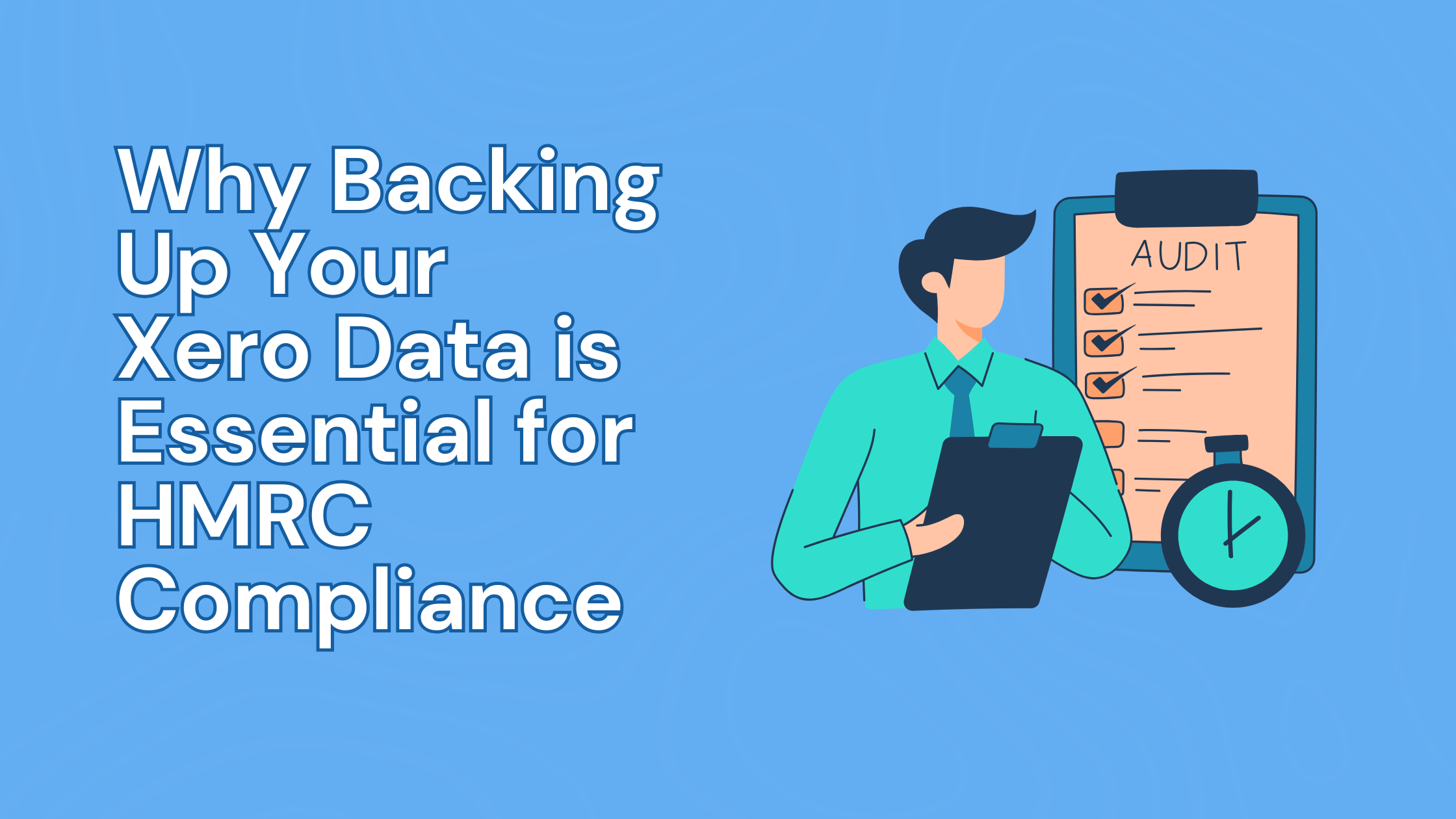
While Xero provides excellent security for your financial data, many users are surprised to learn that Xero does not offer a comprehensive backup solution. This creates a compliance gap for UK businesses that must adhere to HMRC's record-keeping requirements.
HMRC mandates that businesses keep adequate accounting records for tax purposes. According to UK tax law, specifically the Finance Act 1998 (Schedule 18, paragraph 21) and the Value Added Tax Act 1994, businesses must:
While Xero stores your data, relying solely on their platform without independent backups creates several compliance risks.
If Xero experiences service disruptions or outages, you may temporarily lose access to your financial records.
If your Xero subscription is suspended (due to payment issues) or terminated, access to your historical data becomes limited or may eventually be lost entirely.
Xero's built-in export features don't always capture all data fields and relationships, potentially leaving gaps in your records.
To ensure full compliance with HMRC's record-keeping requirements, businesses should implement a robust backup strategy for their Xero data. This should include:
Set up automated backup processes that regularly export and securely store your Xero data. This ensures you maintain continuous records even if there are issues with your Xero account.
Ensure your backup solution captures all relevant financial data, including invoices, bills, bank transactions, and uploaded files.
Store backups in secure, encrypted environments with controlled access to maintain data security while ensuring the information remains accessible when needed.
Regularly test your backup data to ensure it's complete and can be restored if necessary.
Beyond basic compliance, maintaining proper backups of your Xero data offers several advantages:
HMRC can impose penalties of up to £3,000 for failing to maintain adequate accounting records. Proper backups help you avoid these costly penalties.
When HMRC conducts an audit or investigation, having readily accessible historical data makes the process faster and less disruptive to your business.
In case of any data loss incidents, having independent backups ensures your business operations can continue without significant financial record disruptions.
While Xero provides an excellent accounting platform, it's ultimately the business owner's responsibility to ensure proper record-keeping for HMRC compliance. Implementing a reliable backup solution for your Xero data isn't just good practice—it's essential for meeting your legal obligations under UK tax law.
By establishing automated, secure backups of your Xero data, you not only mitigate compliance risks but also gain peace of mind knowing your financial records are protected and accessible whenever needed.
This blog post is for informational purposes only and does not constitute legal or tax advice. For specific guidance regarding your compliance obligations, please consult with a qualified accountant or tax professional.